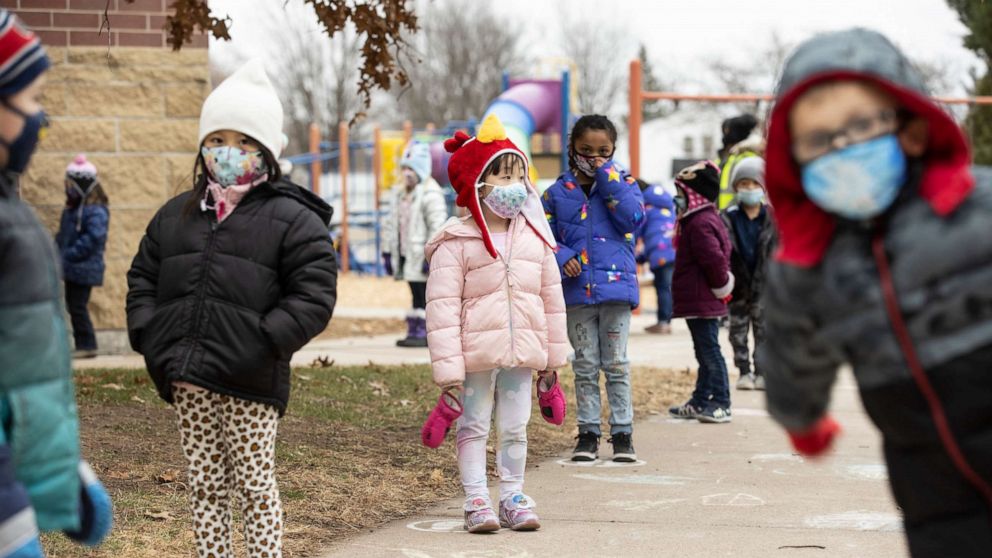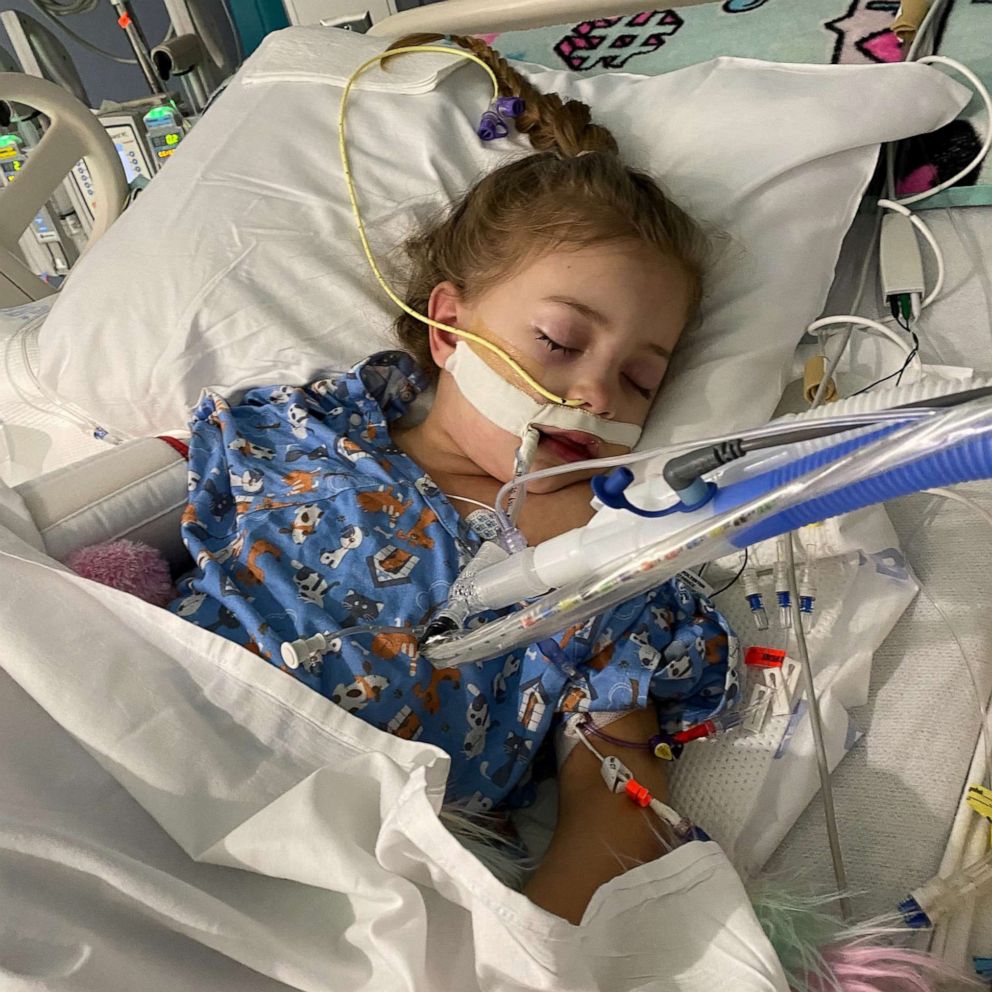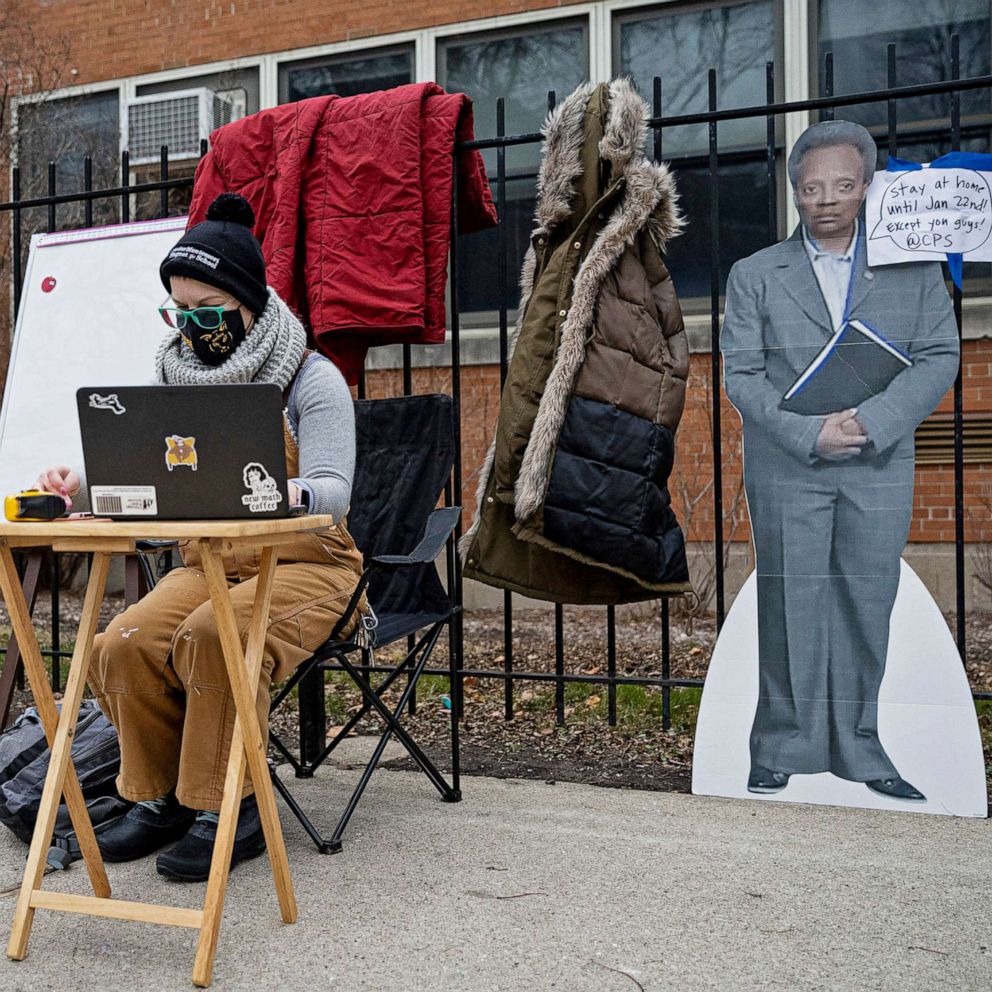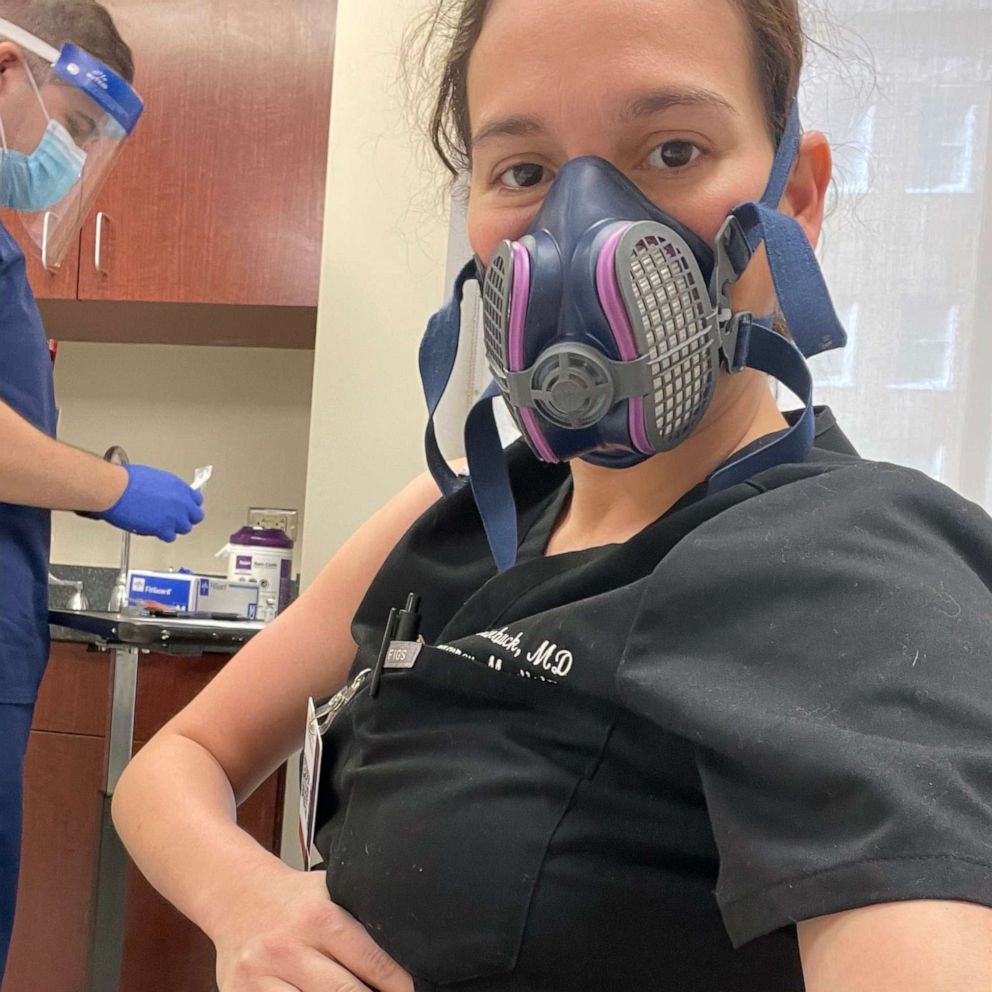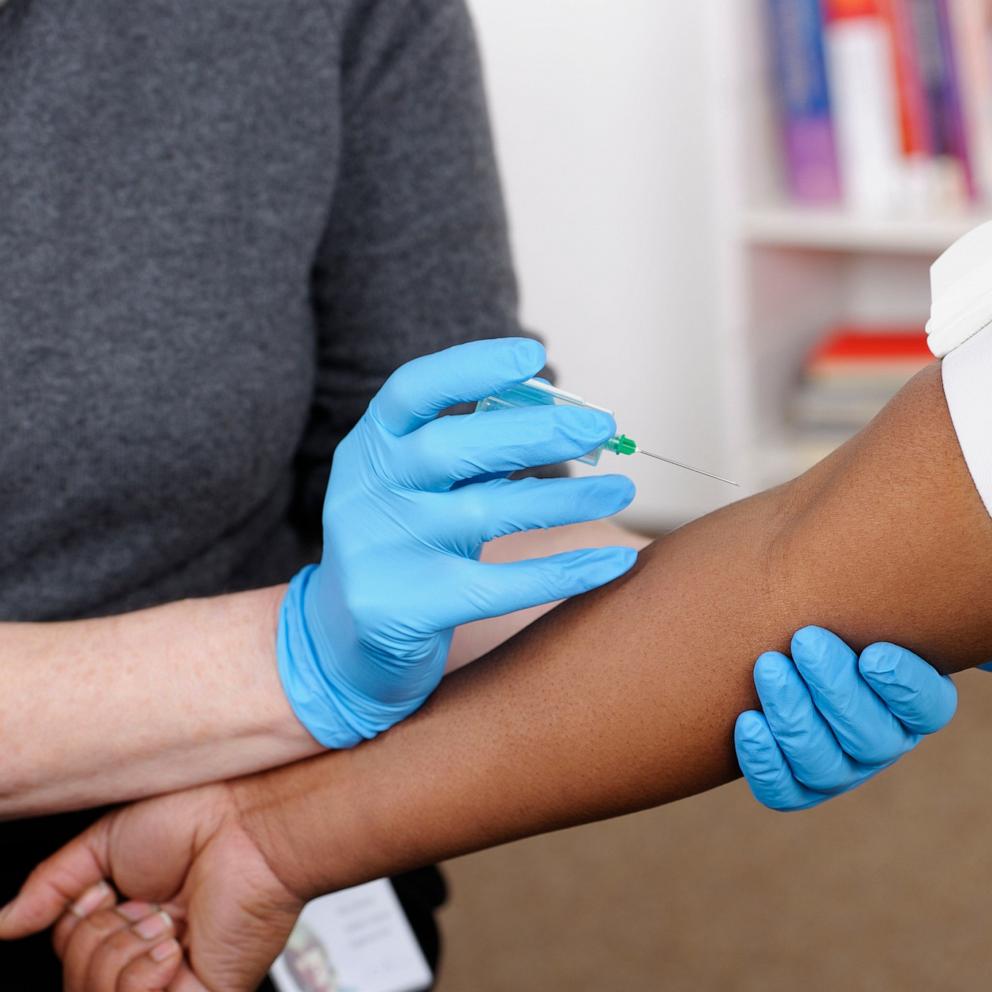US sees 16% increase in kids with COVID-19: Here's what parents need to know
Even one year into the coronavirus pandemic, the impact that COVID-19 has on kids remains a confusing topic for many parents.
A new study released this week by the U.S. Centers for Disease Control and Prevention found there is little evidence of COVID-19 transmission in schools when safety precautions are taken. However, many schools across the country have yet to return to in-person learning.
And while the infection rate among children remains relatively low, there has been a 16% increase in COVID-19 cases among children in the U.S. over the past few weeks, according to the American Academy of Pediatrics (AAP) and the Children’s Hospital Association (CHA) .
Throughout the pandemic, more than 2.6 million children in the U.S. have tested positive for COVID-19, representing 12.7% of all cases, according to the AAP and CHA.
"Children absolutely can be infected with COVID and they're less likely to spread it, but they can spread it," Dr. Lee Ann Savio Beers, president of the AAP, told "Good Morning America." "And as the number of cases in our communities rise, the percentage of the number of cases of children infected with COVID will rise."
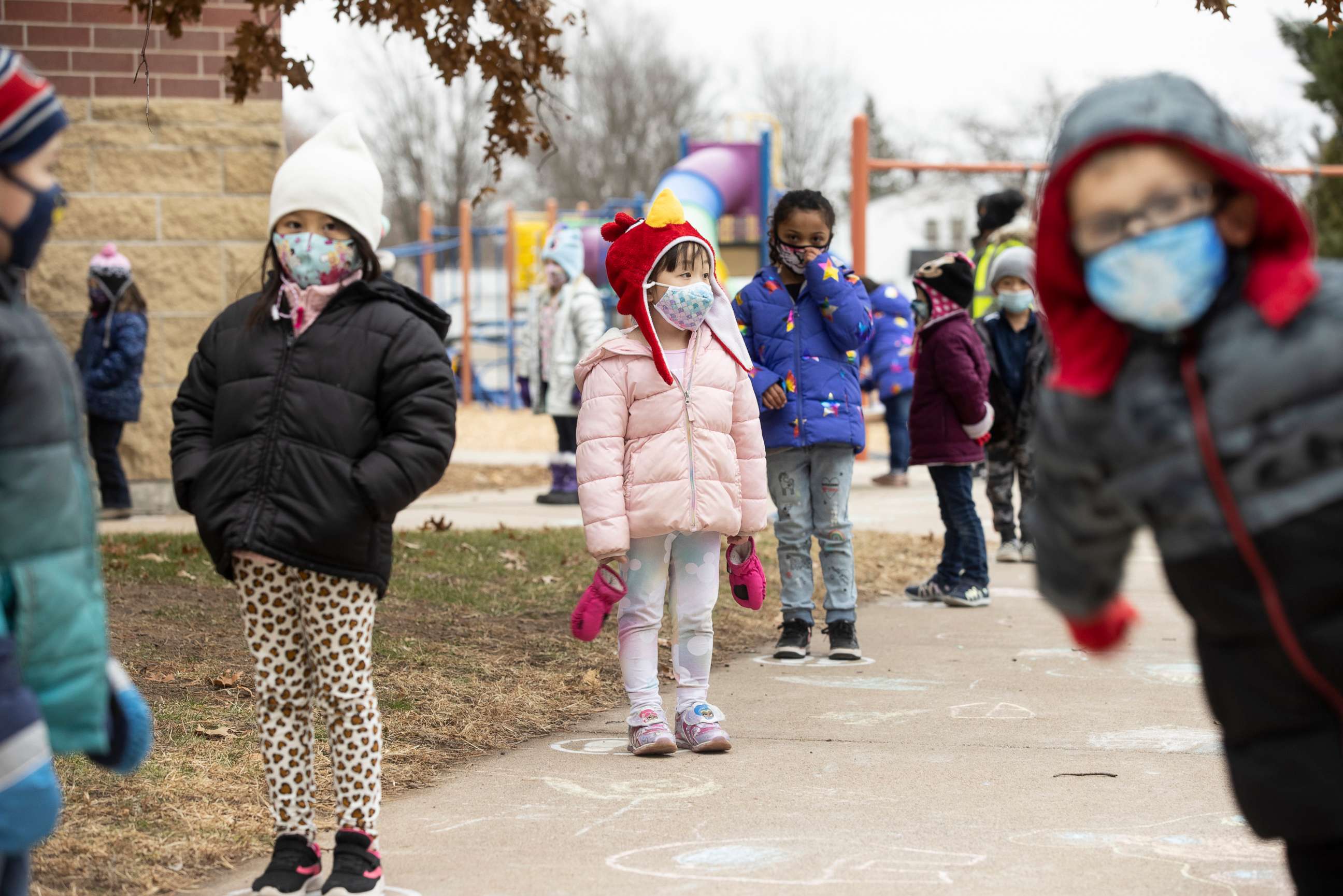
Here are three things parents need to know about the latest on COVID-19 and children as cases continue to rise.
New COVID-19 variants may impact children differently
Early in the pandemic it was observed that children and young adults had lower rates of COVID-19 infection, and those that became infected were less sick or asymptomatic.
A leading theory is that children have less ACE2 receptors on the cells in their respiratory tract which SARS-CoV-2, the virus that causes COVID-19, binds to in order to infect a cell.
But now the rates of COVID-19 are rising in children. One reason may be that the new U.K. and South African COVID-19 variants have mutations that allow them to bind to ACE2 receptors better so the virus can enter children's cells more easily, even though they have fewer receptors.
The rapid transmission prompted governments to delay the reopening of schools after the holidays in many places like the U.K. and Portugal. In other school systems, like Chicago, school reopening has been delayed by teachers threatening to strike because of concern over the transmission.
Dr. Ashish Jha, dean of the Brown University School of Public Health, counters that the rise in COVID-19 cases in kids is more attributable to a rise in cases overall than the new variants.
"What’s happening basically is as we’ve seen large outbreaks in the country, the last month or so we’ve seen some very, very large numbers of infections, kids have been getting more infected too," he said Wednesday on "GMA." "I don’t think it’s anything different. I don’t think it’s the new variant, for instance, playing a role."
2. Severe illness due to COVID-19 is rare, but possible
While severe illness due to COVID-19 appears rare among children, data shows there have been hundreds of children across the U.S. diagnosed with multisystem inflammatory syndrome, or MIS-C.
And if a greater proportion of children become sick, inevitably a greater number could develop this severe illness.
MIS-C is a condition where different body parts like the heart, lungs, brain, skin, eyes and kidneys can become inflamed. The condition occurs in children who have been infected with COVID-19.
Because children can often be asymptomatic with COVID-19, experts say it is important for parents to watch for symptoms in children who have been exposed to COVID-19, whether or not they have actually tested positive for the virus. Some of the symptoms of MIS-C include a fever that won't go away for more than three days, trouble breathing, abdominal pain, diarrhea, vomiting, a rash, red and cracked lips, a red and swollen tongue, or swollen or reddened hands and feet.
The symptoms typically present within a month of being exposed to COVID-19. It is important that a child with MIS-C be treated as quickly as possible in order to improve the odds of recovery and prevent lasting damage.
3. Young kids are not eligible for the COVID-19 vaccine, yet
While adults across the country are receiving COVID-19 vaccines, doctors have predicted that a vaccine will not be available for children until mid-to-late 2021.
That's because typically, childhood vaccines are approved after being tested and showing promise in adults. Vaccine specialists say that ethically, it's appropriate to test a vaccine in adults before testing in children.
Pfizer broadened its trials to start testing children as young as 12 in October, and Moderna followed suit in December.
Getting the vaccine to high-risk adults as soon as possible remains the priority to mitigate the number of deaths and spread of the virus.
The age requirement for the childhood vaccine will also have to be determined through the studies, according to Dr. Anna Durbin, a professor at the Johns Hopkins Bloomberg School of Public Health who specializes in infectious diseases and researches experimental vaccine trials.
"You'll have to look at the numbers of transmission to determine whether to vaccinate children below 5, for example, and then make a determination whether or not you'd need to vaccinate children under that age," Durbin told ABC News in December.
Since a majority of infected children do not show symptoms, Durbin believes that the studies will likely focus on whether children have reactions to the vaccine and build robust immune responses. Studies in adults have focused on adults who test positive for COVID-19 after the vaccine is given.
Once deemed safe for children, further research on the vaccine is required to determine when during the childhood vaccination schedule the COVID-19 vaccine can be administered, experts say.
While research continues on the vaccine and children, experts say families should continue to focus on safety protocols like mask wearing, hand washing, avoiding large crowds and maintaining social distancing.
Parents and grandparents should also get vaccinated whenever the COVID-19 vaccine is available to them, according to Savio Beers, president of the AAP.
"The more people in our community who are vaccinated, the less coronavirus is going to spread," she said. "It does also remind us that we need to really be approaching the clinical trials for the COVID vaccine in children with the same urgency that we were approaching the trials in adults because it's really important to make sure that the COVID vaccine is available for everyone in our communities, adults and children."
Adjoa Smalls-Mantey, M.D., D.Phil., is trained in immunology and is a psychiatrist in New York City. She is also a contributor to the ABC News Medical Unit.
ABC News’ Dr. Lily Nedda Dastmalchi and Ramie Fathy contributed to this report.
